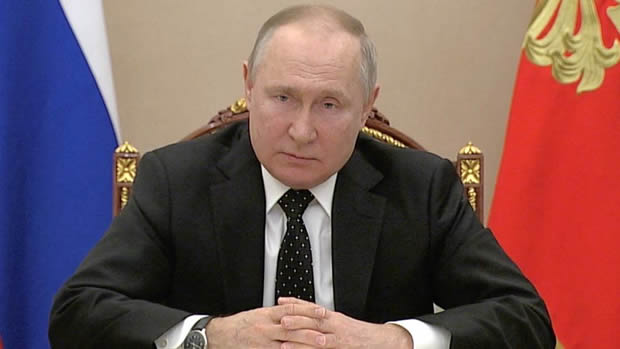
Russian President Vladimir Putin told leaders and officials from African countries on Thursday that Moscow would provide grain for sale or free to the neediest countries to avert the uncertainty in the global food supply caused by Russia’s refusal to guarantee safe passage for Ukrainian grain exports across the Black Sea.
Putin, speaking at the opening session of a two-day Russia-Africa summit in St. Petersburg, said, “I have already said that our country can replace Ukrainian grain, both on a commercial basis and as grant aid to the neediest African countries, more so since we expect another record harvest this year.”
“Our country will continue supporting needy states and regions, in particular, with its humanitarian deliveries,” Putin said. “We seek to actively participate in building a fairer system of distribution of resources. We are taking maximum efforts to avert a global food crisis.”
But in Washington, the White House pushed back on Putin’s claim of professing to resolve the food crisis affecting the world’s most impoverished countries.
National Security Council spokesman John Kirby told VOA, “I hope he tells them, ‘I’m the reason why the food prices are volatile. I’m the reason why you’re going to have more problems with starvation, and with access to food and grain in your countries.’”
“I hope he’s as honest with them as he should be, because it is, there’s only one party responsible for the volatility we’re seeing, and for the fact that the grain is now going to be much harder to get out of Ukraine, and that’s Russia, that’s Mr. Putin,” Kirby said.
Russia last week rejected an extension of the nearly year-long Black Sea Grain Initiative, contending that exports of Russian grains and fertilizers were not being treated fairly under the deal. Moscow has since said it would treat any ships sailing the Black Sea as possibly delivering arms to Ukraine for its fight against Russia’s 17-month war and could attack them.
Putin is using Russian food exports to boost Moscow’s ties with African countries and the continent’s 1.3 billion people.
Kirby said, “On the face of it, it looks like a desperate attempt by Mr. Putin to, to try to paper over the impact that his decision to not extend the [Ukrainian grain export] deal is going to have on African nations. Then, obviously, each of these sovereign nations have got to decide for themselves whether this new offer by Mr. Putin is legitimate and whether they want to accept it.”
Putin also announced other moves to deepen relations with Africa, including increased enrollment of African students in Russian universities, the opening of Russian state news media bureaus in many African countries and a proposed “common information space in Russia and Africa, within which objective, unbiased information about events taking place in the world will be broadcast to Russian and African audiences.”
It was the second Russia-Africa summit since 2019. But the number of heads of state attending shrank from 43 then to 17 now because of what the Kremlin claimed was Western pressure to discourage African nations from taking part.
Putin’s foreign affairs adviser, Yuri Ushakov, said that while only 17 heads of state are attending the summit, 32 other African countries are represented by senior officials or ambassadors.
Source: voanews.com























